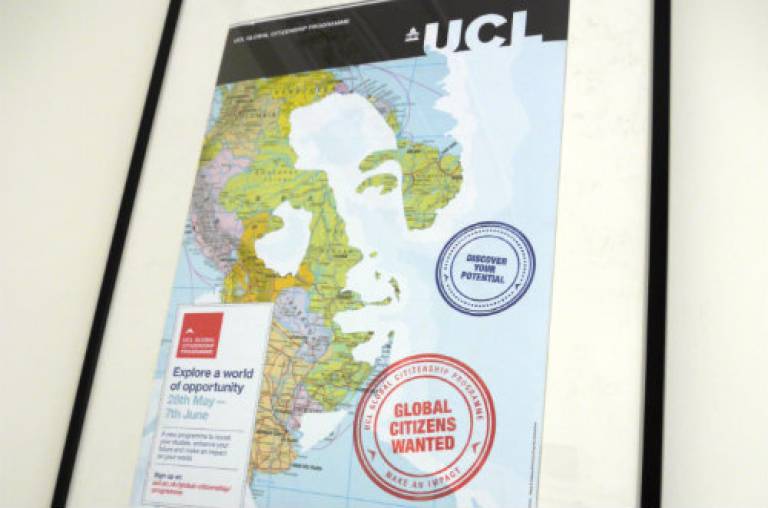Putting Global Citizenship at the heart of your degree
Dr Doug Bourn (IOE) discusses how global citizenship can assist staff to reflect the diverse needs of their students and to promote a good sense of global social response.

16 June 2015
Staff from across UCL recently came together for a thought-provoking Arena exchange seminar which unusually began with a paired discussion to find out each others’ expectations for the session.
After sharing these back to the wider group, the key theme was a desire to know more about the UCL specific definition of global citizenship was and how this might be integrated effectively within their own area of study.
Defining what global citizenship is
Dr Bourn provided a short overview of global citizenship before handing back over to the group for discussion. In essence, global citizenship is about connecting Higher Education studies with the outside world and, importantly, to students’ individual identity.
Discussions around global citizenship education at UCL usually attribute our student and graduates with the awareness “of their social, ethical and political responsibilities”. But what do we mean by responsibilities?
Furthermore, how do we define these politically, ethically and socially? And in doing so, how do we successfully integrate these in to our programmes?
It may also be interpreted that global citizenship assumes the concept of 'change' is vital and that active engagement is necessary for these responsibilities to be fulfilled.
However, as the afternoon’s brief conversations suggested, the terminology associated with global citizenship can be understood differently depending on individual perspectives and often the concept inspires a wide range of definitions and approaches. Indeed, other institutions with global citizenship definitions can focus on quite different values and attributes.
How to embed global citizenship in the curriculum
Further group discussion elicited a range of questions to think about when putting global citizenship attributes at the heart of our students’ degrees:
- What makes a global citizen?
- How does UCL fit in the wider context of global citizenship?
- Are global citizenship themes an effective way of embedding interdisciplinary learning?
- How can we be more inclusive?
- How can global citizenship help integrate cultural differences?
- Global perspectives are needed in the wider world. How do we encourage this?
The group then discussed a case study working to embed principles of Global Citizenship in to the curriculum.
Various UCL health departments have been supported by a DFID grant to integrate a common ‘global perspective’ in to their various programmes.
To do so effectively within the medical curriculum, conversations began with how to make the inclusion not too onerous or extracurricular but a deeply embedded aspect of the course.
The solution was that by 2013, the curriculum encouraged students to address global issues through useful case studies and international electives (through international development organisations).
By putting the global citizenship attributes inside the programme, students look beyond simply acquiring academic knowledge and ‘practical’ skills and develop a world view they see as part of their professional development.
Showing that professional and transferrable skills are of equal importance
Embedding global citizenship attributes within the students’ studies also had the added benefit of contextualising the notion that professional and soft skills are just as vital to graduates as academic knowledge.
By giving the students a thorough understanding of how these critical thinking and problem solving skills will be useful for life after university, it was reinforced that global citizenship attributes are not an extracurricular activity but a part of the learning process.
However, it is crucial that staff remain sensitive to the diversity of our student body and to create an inclusive curriculum that reflects this. Doing so is about responding to students’ needs and understanding their expectations without the result being a projection of pre-held assumptions.
Understand what global citizenship means to the students
It is useful to consider whether students find the concept of global citizenship important from the outset.
It may be that some students don’t believe they have had enough real world experience to be able to engage with the themes presented.
Perhaps they assume exploring global citizenship is for an ‘elite’ group of students who are considering international careers or are pursing global experiences. Having initial discussions about global citizenship attributes and skills will bring hopefully bring any issues to the fore.
Ultimately, exploring global citizenship with your students allows them to discuss wide-ranging topics with their peers and staff – something they may not be able to do unless given the opportunity.
 Close
Close

